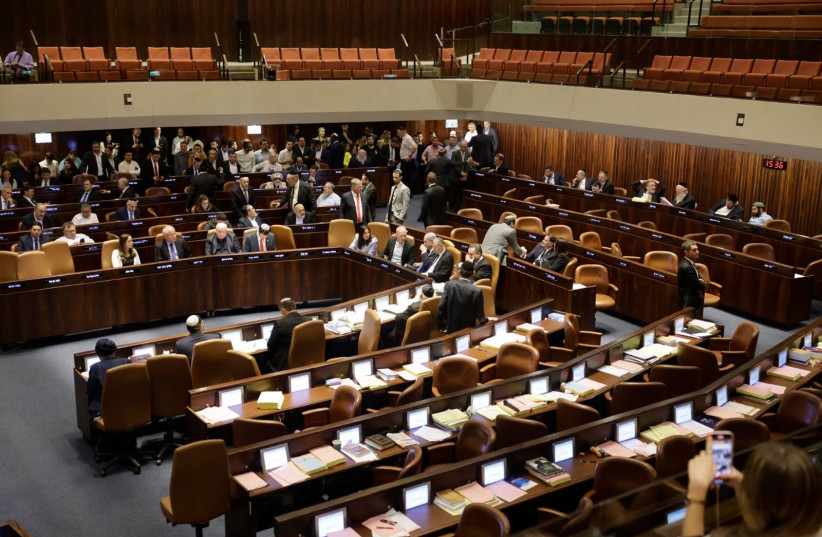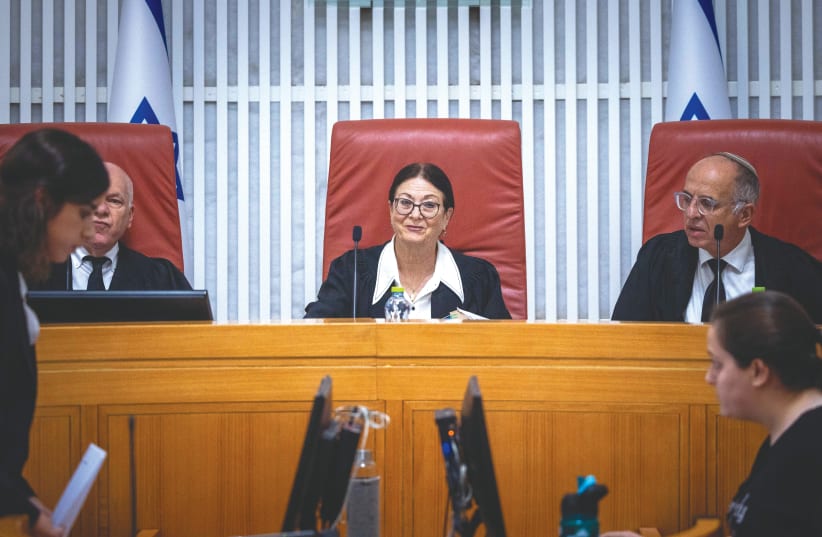NGOs filed petitions to the High Court of Justice hours after the passing of the judicial reform reasonableness standard bill on Monday, calling for the striking of the bill.
The petition by the Movement for Quality Government in Israel (MQG)argued in its petition that the bill gave unlimited power to the executive branch. To pass the bill, the NGO said that the legislation went through a flawed process due to a lack of time afforded to the discussion of the legal infrastructure in the Knesset Constitution, Law, and Justice Committee. Further, committee chairman MK Simcha Rothman misused his authority by falsely presenting the bill as a committee bill, when it was a private bill by all intents and purposes.
"The government did not respond to our call to stop the destruction and tearing apart, now it is the High Court's turn to stand up and prevent this legislation," said MQG head Dr. Eliad Shraga.
During the second reading, Shraga told The Jerusalem Post at the NGO's tent in front of the High Court building that they already had a petition ready "if the legislation will pass the third reading."
"We hope that the High Court will issue a temporary injunction," said Shraga.

Since the reasonableness bill is an amendment on Basic Law: The Judiciary, Shraga explained that a hearing on the petition would be unprecedented. If the petition is accepted, it would be the first time the court heard arguments to abolish a matter of a Basic Law.
Shraga said that the court would need to consider arguments on the Knesset's abuse of constitutional authority and legislation of an unconstitutional amendment to the constitution. Israel lacks a formal written constitution but has quasi-constitutional basic laws.
If struck down by the court, the situation could create a constitutional crisis – a situation of legal and authoritative uncertainty that isn’t detailed in the state’s documents and doctrines.
The Civil Democratic Movement and Darkenu filed another petition, saying that it would have been better had they never had to submit it. They also called for an interim order against an amendment that would "fundamentally change" the balance of the three branches of government. They included a comparative review of the legal frameworks in other countries.
Interest groups like the Smoke Free Israel submitted a petition on the grounds that without the reasonableness standard, protections would be removed for anti-smoking measures. The group said that much of the anti-smoking legal infrastructure and tax regulations relied on the reasonableness standard.
Petition from the Association for Civil Rights in Israel
The Association for Civil Rights in Israel filed a preliminary petition on Monday, arguing that the Knesset abused its constitutional authority and violated constitutional norms. Like other petitions, it pointed to the ostensible degradation of boundaries between the branches of government.
ACRI warned that cancellation of the standard would allow the government to freely appoint or dismiss officials without reason. These officials are key to preventing the violation of human rights and overseeing the requirement that authorities act in a reasonable manner. Others could be appointed even if they had proven themselves violators of rights or corrupt. ACRI also argued that reasonableness served as a defense against corruption in administrative decisions because it required officials to present their policy reasoning.
On Sunday the Israel Bar Association National Council announced that it would be backing the Thursday announcement of its chairman Amit Becher, that the Bar would be filing a petition against the bill.
